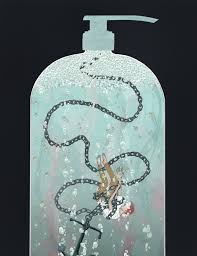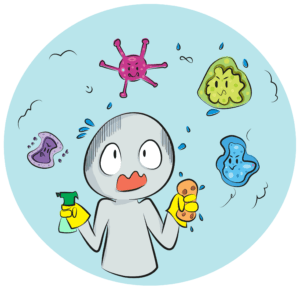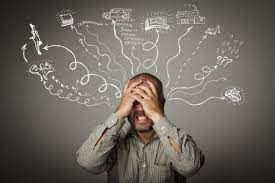Mental contamination is a fear of contact with contaminants, which are typically germs or dirt. For people with OCD, this fear can be debilitating, leading to obsessive thoughts and compulsive behaviors. In this blog post, we will discuss the symptoms as well as treatment of mental contamination OCD. We will also provide tips for overcoming this fear.
Contents
Defining Mental Contamination OCD

Mental contamination OCD characterizes by fear of contact with contaminants, which are typically germs or dirt. This fear can further lead to obsessive thoughts and compulsive behaviors. People with mental contamination OCD also often worry that they will contract a disease or become dirty. They may avoid people or places that they believe are contaminated. They may also wash their hands frequently or avoid touching objects that they believe are contaminated. It is important to note that people with mental contamination OCD are not actually dirty or contaminated.
The symptoms of mental contamination OCD can vary in severity. Some people may only have mild symptoms, while others may have severe symptoms that interfere with their daily life.
Causes Of Mental Contamination OCD
There is no single cause of OCD. However, several factors may contribute to the development of this disorder. These factors include genetics, brain chemistry, and stressful life events.
Genetics: Mental contamination OCD may be caused by a combination of genetic and environmental factors. Some people may also be more likely to develop OCD if they have a family member with the disorder.
Brain chemistry: Abnormal levels of certain neurotransmitters in the brain may also contribute to OCD symptoms.
Stressful life events: A stressful event, such as a death or divorce, can trigger OCD symptoms.
Risk factors: These include having a family member with OCD, experiencing trauma or stress, and further having anxiety or depression.
Signs Of Mental Contamination OCD

If you have mental contamination OCD, you may:
- Worry that you will become ill if you come into contact with a contaminant
- Avoid people or places that you believe are contaminated
- Wash your hands frequently or avoid touching objects that you believe are contaminated
- Excessive research about diseases/disorders
- Feel that your home is not clean enough
- Have difficulty eating food that others have prepared
- Wash your hands frequently
- Avoid touching objects that you believe are contaminated
- Not wanting to remember negative thoughts as they might contaminate your present
- Fearing getting flashbacks
Effects Of Mental Contamination OCD

Mental contamination OCD can have a significant impact on your life.
- It can cause you to avoid people and places, which can lead to social isolation.
- It can also interfere with work, school, and other activities.
- A person may feel stuck in a loop of thoughts which can cause problems in emotional regulation.
- Obsession over mental constraints may come in the way of leading and controlling present real-life activities.
- If left untreated, mental contamination OCD can worsen and lead to depression and anxiety.
Treatment Options
If you think you may be struggling with this disorder, it is important to reach out for help. This condition can be very difficult to deal with on your own. Remember, there is no shame in seeking further treatment for a mental disorder!
Therapy
There are several effective treatments for mental contamination OCD.
Exposure and response prevention therapy (ERP) is one of the most common and successful forms of treatment. ERP involves gradually exposing yourself to your feared objects or situations while refraining from engaging in compulsive behaviors. This exposure allows you to confront your fears and also learn that they are not as dangerous as you think.
Cognitive-behavioral therapy (CBT) is another effective treatment for OCD. CBT focuses on changing the thoughts and behaviors that contribute to OCD.
Medication can also be used to treat OCD. Selective serotonin reuptake inhibitors (SSRIs) are the most commonly prescribed type of medication for OCD.
Note: it becomes important to follow up with your healthcare provider to monitor the efficacy, side effects, as well as the benefits of medication.
Self Help Tips
In addition to professional treatment, there are several things you can do to help yourself overcome this condition.
Here are some self-help tips:
- Educate yourself about OCD and mental contamination. This can help you understand your thoughts and behaviors and realize that they are not rational.
- Challenge your beliefs about contamination. Are you really at risk of becoming ill if you come into contact with a contaminant? Is it really necessary to avoid all contact with contaminants?
- Expose yourself to your feared objects or situations. This exposure will help you confront your fears and further learn that they are not as dangerous as you think.
- Avoid compulsive behaviors. Compulsive behaviors only serve to reinforce your fear of contamination.
- Practice relaxation and stress management. This can help you cope with anxiety as well as reduce the urge to engage in compulsive behaviors.
Conclusion
Mental contamination OCD is a common and debilitating form of OCD. However, there are several effective treatments available. With treatment, you can overcome your fear and live a normal, healthy life. If you or someone you know is struggling with this condition, please seek further professional help. Remember, you are not alone. There is hope for recovery.
If you are looking for affordable Online OCD Counseling MantraCare can help: Book a trial OCD therapy session


